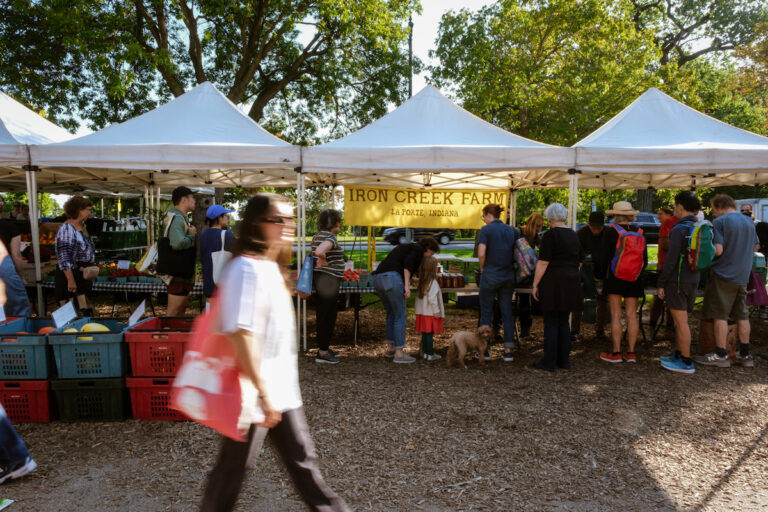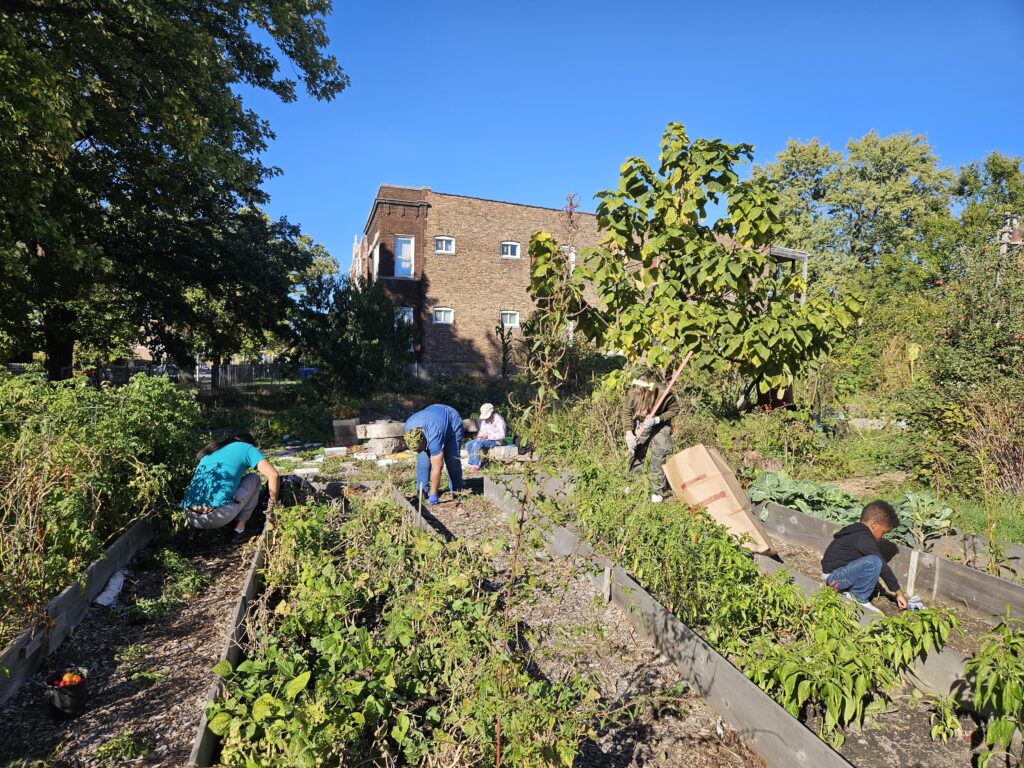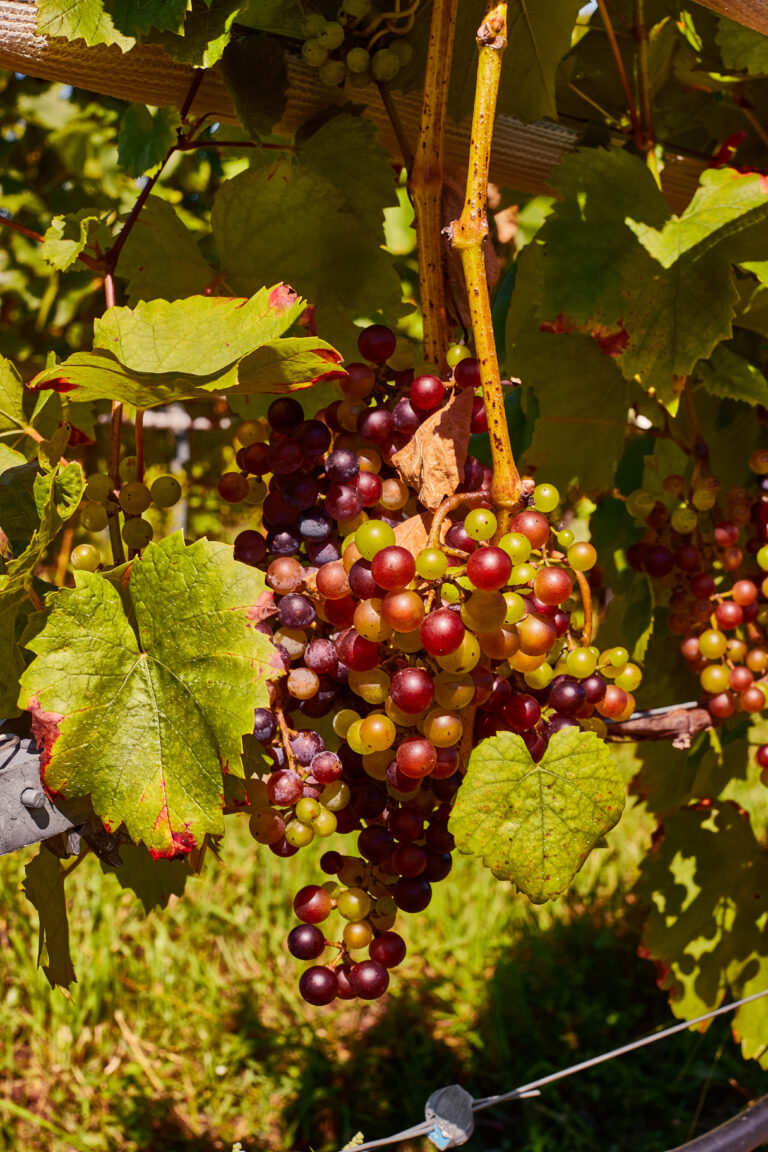
Advocates for Urban Agriculture Cultivates a Just Food System in Chicago
Full story in the 2025 Spring Issue | Edible Chicago
Chicago’s iconic skyline might dominate the view, but it’s the rooftops, boulevards, and vacant lots that are quietly reshaping the city’s future. Since 2002, Advocates for Urban Agriculture (AUA) has been at the forefront of this transformation—building a more just, sustainable food system rooted in equity and community.
“Urban agriculture transforms spaces where many assume nature can’t exist—into thriving sources of fresh, culturally relevant food,” says Bea Fry, AUA’s Programs Steward.
Cultivating Equity Through Urban Agriculture in Chicago
Founded by a group of growers and organizers, AUA began as a grassroots initiative to advocate for urban agriculture-friendly policy. Today, it’s a queer grower-led, worker self-directed nonprofit focused on addressing systemic challenges in farming—like land access, labor equity, and food sovereignty.
Their work is about more than farming; it’s about empowering communities to become earth stewards—people who tend to both land and community with intention and care.

Mentorship That Grows More Than Food
Through programs like the Farmer to Farmer Mentorship and the Solidarity Circle, AUA creates space for urban farmers to connect, collaborate, and thrive.
One such mentor is Azizah Ashraf-Ali, a former Chicago teacher turned full-time grower on her 5-acre farm in Pembroke Township, IL.
“AUA has been a godsend,” says Ashraf-Ali. “At 81 years old, having people come in to help makes everything easier. Through the mentorship program, I’ve met young people who assist with planting and harvesting. I don’t know what I would’ve done without them.”
She now mentors younger growers and serves on the review board for AUA’s Capacity Building Grant—paying it forward for the next generation of farmers.
Tackling the Challenge of Water Access for Urban Farms
One of the most persistent challenges facing urban growers in Chicago is access to water. The city’s hydrant permitting process can be expensive and difficult to navigate, often delaying the growing season.
AUA’s Water Steward, Tucker Kelly, leads efforts to solve these issues by offering technical assistance, equipment, and alternative water solutions like rain barrels and drip irrigation systems.
“One of the most frequent problems we see is growers struggling with the city’s hydrant access request process,” says Kelly.
Prioritizing Food Safety and Access
While rain barrels and irrigation are vital for watering crops, that water can’t be used to wash produce without treatment. AUA helps growers adopt safe food handling practices, providing resources and training on sanitization, storage, and food-safe equipment.
For many farms without cold storage or sanitizing stations, these tools can be a game changer for both safety and sales.
Financial Resources and Administrative Support for Growers
AUA doesn’t just focus on farming techniques—they help growers navigate complex systems like insurance, zoning, and taxes. Their Capacity Building Grant, which awards $100,000 annually, helps fund labor and infrastructure costs for small farms.
They also offer personalized support to walk growers through paperwork, licensing, and other bureaucratic hurdles that can otherwise stall progress.
The Bigger Picture: A Food Future Built by Many
“It is not AUA’s role alone to create a just food system,” says Fry. “This food future is contributed to by thousands—millions—of people throughout the region.”
From rooftops to reclaimed lots, Chicago’s food system is being reshaped by everyday earth stewards, growers who are transforming their communities one garden at a time.
Want to Get Involved?
Whether you’re a seasoned grower or just digging into urban agriculture for the first time, Advocates for Urban Agriculture has resources, programs, and a thriving community ready to support your journey.
👉 Visit advocatesforurbanagriculture.org and read the full story from our spring issue in print. Find a copy.


